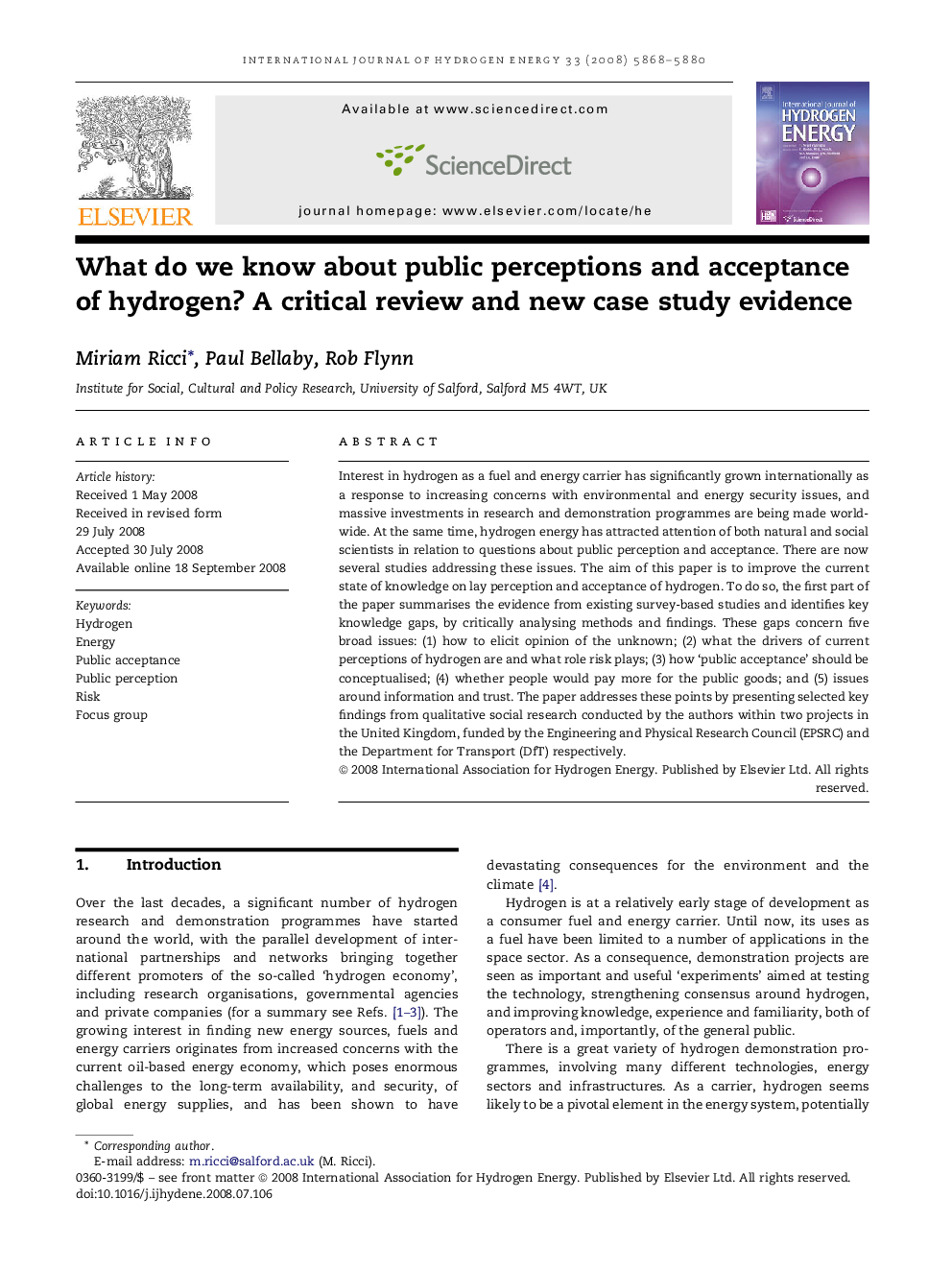| کد مقاله | کد نشریه | سال انتشار | مقاله انگلیسی | نسخه تمام متن |
|---|---|---|---|---|
| 1283584 | 1497645 | 2008 | 13 صفحه PDF | دانلود رایگان |

Interest in hydrogen as a fuel and energy carrier has significantly grown internationally as a response to increasing concerns with environmental and energy security issues, and massive investments in research and demonstration programmes are being made worldwide. At the same time, hydrogen energy has attracted attention of both natural and social scientists in relation to questions about public perception and acceptance. There are now several studies addressing these issues. The aim of this paper is to improve the current state of knowledge on lay perception and acceptance of hydrogen. To do so, the first part of the paper summarises the evidence from existing survey-based studies and identifies key knowledge gaps, by critically analysing methods and findings. These gaps concern five broad issues: (1) how to elicit opinion of the unknown; (2) what the drivers of current perceptions of hydrogen are and what role risk plays; (3) how ‘public acceptance’ should be conceptualised; (4) whether people would pay more for the public goods; and (5) issues around information and trust. The paper addresses these points by presenting selected key findings from qualitative social research conducted by the authors within two projects in the United Kingdom, funded by the Engineering and Physical Research Council (EPSRC) and the Department for Transport (DfT) respectively.
Journal: International Journal of Hydrogen Energy - Volume 33, Issue 21, November 2008, Pages 5868–5880